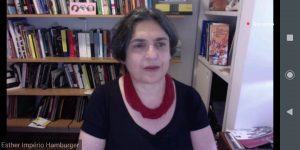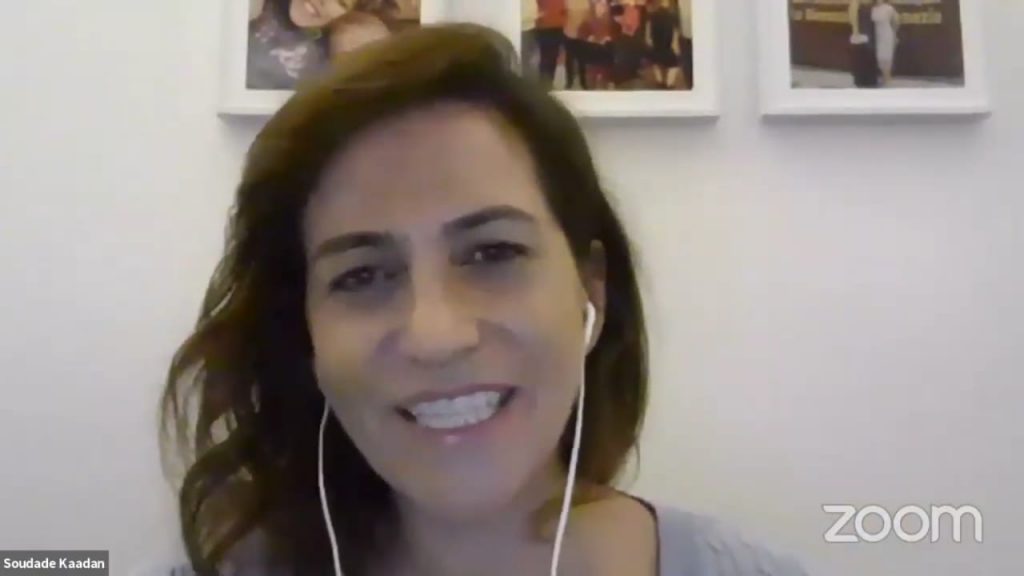São Paulo – The feature film by Syrian director Soudade Kaadan, ‘The Day I Lost My Shadow,’ mixes fiction with reality, portraying the daily life in Syria in the beginning of the war. For Kaadan, portraying strong female characters was just natural. “I’ve always drawn from my experience, the women in my life. It’s like I was telling my story. I’m a woman, and I believe that, based on how women experience the war in Syria, my protagonist is not a hero. She’s just a regular human, trying to live one day at a time,” she said during an online meeting hosted by the Arab Film Festival at Home on Wednesday (3).
The movie portrays the beginning of the war in the country and was filmed in Lebanon. “I portrayed the beginning of the war because she [the protagonist] had no choice when the war started. She was part of it,” explained Kaadan, who won the Lion of the Future at the 2018 Venice Film Festival. The filmmaker explains that she was never a refugee and admits that this is a privilege compared to others from her country. The fact that she experienced a different reality from how her countrymen were usually portrayed led her make a work that showed a different, non-documental approach.

The meeting was moderated by Flávia Guerra, a journalist, documentarist, curator, and film critic. It also featured questions from the audience and Esther Império Hamburger, professor at the Department of Film, Radio and Television of the University of São Paulo (ECA/USP). “The film has a realistic benchmark, as it is set in a real space, but there it is the issue of the shadow that wedges the real open and allows the imagination to fly,” Hamburger pointed out about the metaphor that marks the film.
The film struggled to attract investment, and the participation of Kaadan’s sister as a producer was key. “When you won the award in Venice, you said this was a very personal project of yours,” Guerra commented. “When I started, everybody only cared about documentaries. Nobody wanted to invest in fiction. But it is important for us how we express ourselves and how we put strong women in the movie. It’s important for us as filmmakers. At the beginning it was hard because nobody liked the topic, but then my sister said, ‘Let’s do it together,” she said.

For Kaadan, the importance of occupying central roles in productions such as this lies on the representation. “An independent film made by a Syrian filmmaker is different. Many Syrians believe that the movies don’t represent them. I tried to make a realist movie so that the local audiences watched and were moved by it, too,” she finished.
The Arab Film Festival is taking place until September 13. In addition to the online meetings, several movies are being screened online. The Festival at Home is hosted by the Institute of Arab Culture (Icarabe), featuring SESC São Paulo as a co-host, and sponsored by the Arab Brazilian Chamber of Commerce (ABCC), with support from Instituto do Sono and the Federation of Muslim Associations in Brazil (Fambras).
Quick facts
Arab World Film Festival at Home
August 28-September 13
Festival Platform
SESC Platform
Free of charge
Translated by Guilherme Miranda




